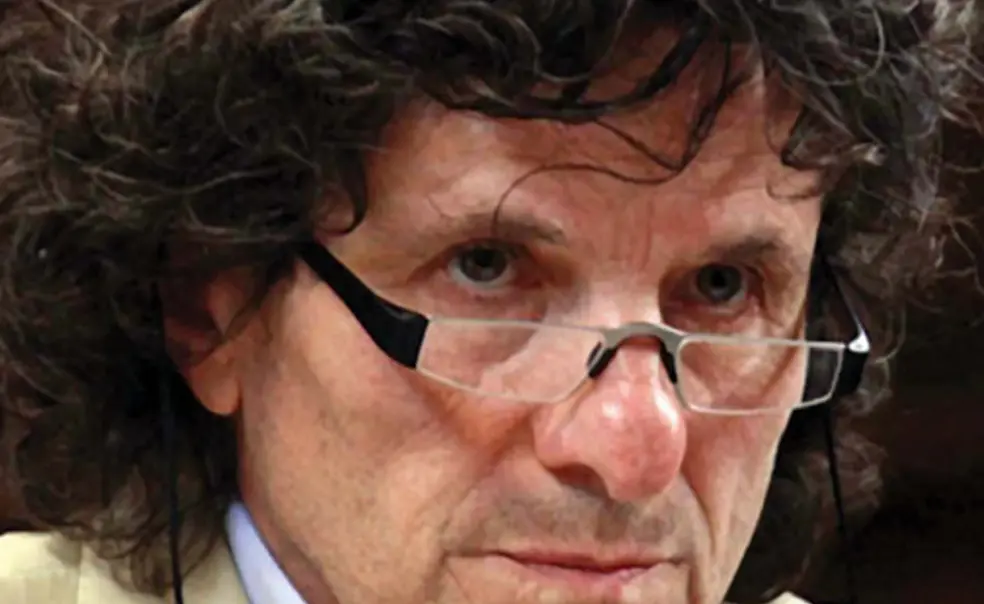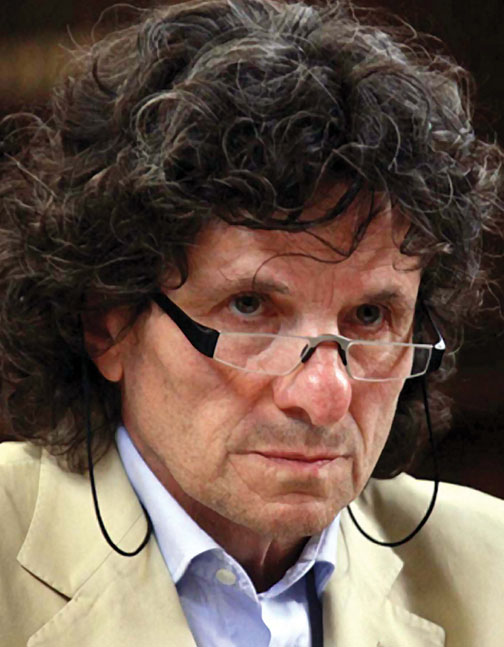Maurizio Viroli, on Italy and Berlusconi
Silvio Berlusconi resigned last November after three contentious terms as prime minister of Italy, with his country and possibly the eurozone itself in dire financial straits. Berlusconi, whose net worth has been estimated at more than $6 billion, controls both the Mediaset media conglomerate and the political party that propelled him into office, but he faces criminal investigations on charges ranging from bribery and tax fraud to soliciting minors for sex. A new book about Berlusconi, The Liberty of Servants, by politics professor Maurizio Viroli, is being published in English by the Princeton University Press later this year. Viroli, who was born and educated in Italy, discussed the current political situation as well as the man known as Il Cavaliere (The Knight).
What was the secret to Berlusconi’s rise to power?
Berlusconi had enormous power because of his extreme wealth, plus his control of both a media empire and a political party. He is also quite an effective communicator, with a great ability to tell Italian voters what they wanted to hear — that there was no need to raise taxes, and that the country had no major problems to face.
Is there something about Italian political culture that made Berlusconi’s power possible?
Italians have never been good at defending their own liberty because Italians are extremely hostile to the rule of law and to the idea of civic duties. They think those are only good for fools and idiots. Italians also have a long history of inclination to flatter and serve powerful men. It is what I have called Italy’s moral weakness. Therefore, it is very easy for someone who is powerful and clever to dominate the Italians.
In your book you use the term “veiled tyranny.” What does it mean?
Veiled tyranny is an idea that was coined by Italian jurists in the 14th century to describe what was happening in Italian republics. It consists in the domination of one man who is capable of imposing his will on the people. It is veiled because it grows within republican institutions and without resorting to overt acts of violence. It affirms itself through favors and patronage. This is Berlusconi. In many ways it is even more dangerous and corrupting than open tyranny.
Tell us about Italy’s new leader.
Italy currently has a government led by Mario Monti, who is an economist and an academic rather than a politician. He was appointed prime minister, but he does not have a solid majority in the Parliament, and he never has been elected by the Italian voters.
Will Italians accept austerity measures to clean up the economic mess?
I doubt it. Italian voters, particularly the lower classes, will say that it is too hard for them to pay the costs of economic and social reform. If Berlusconi or someone sustained by him reappears on the political stage, that person will probably win. When you ask citizens to endure sacrifices, you need a political leader of great credibility and great popular support. It would require Italians to accept the idea that citizenship carries with it civic duties. I would define that as a cultural transformation, and I doubt it will take place, particularly not with a technician like Mario Monti.
Could Berlusconi return to power?
Yes. The man does not like to lose. Also, he thinks that if he is out of power, he is vulnerable to the judiciary. For these reasons, he will probably seriously consider a comeback, either running for prime minister himself or running someone who will sustain his interests. Remember, he was never defeated. He saw that Italy was on the verge of bankruptcy, so he made a tactical retreat in order to preserve his ability to come back later.
Was the euro an unworkable idea?
To remain part of the European Union, Italy must address some very serious historical problems — bad government, the waste of public resources, corruption, unreliability, and a lack of a sense of responsibility among political leaders. So the euro has been a benefit, but it is also a challenge. I am almost sure that in the next elections, in 2013, we will see a potent political force saying that the EU is the cause of all of Italy’s problems. They will put the blame on Europe in order to spare the conscience of the Italians.
— Conducted and condensed by Mark F. Bernstein ’83













No responses yet